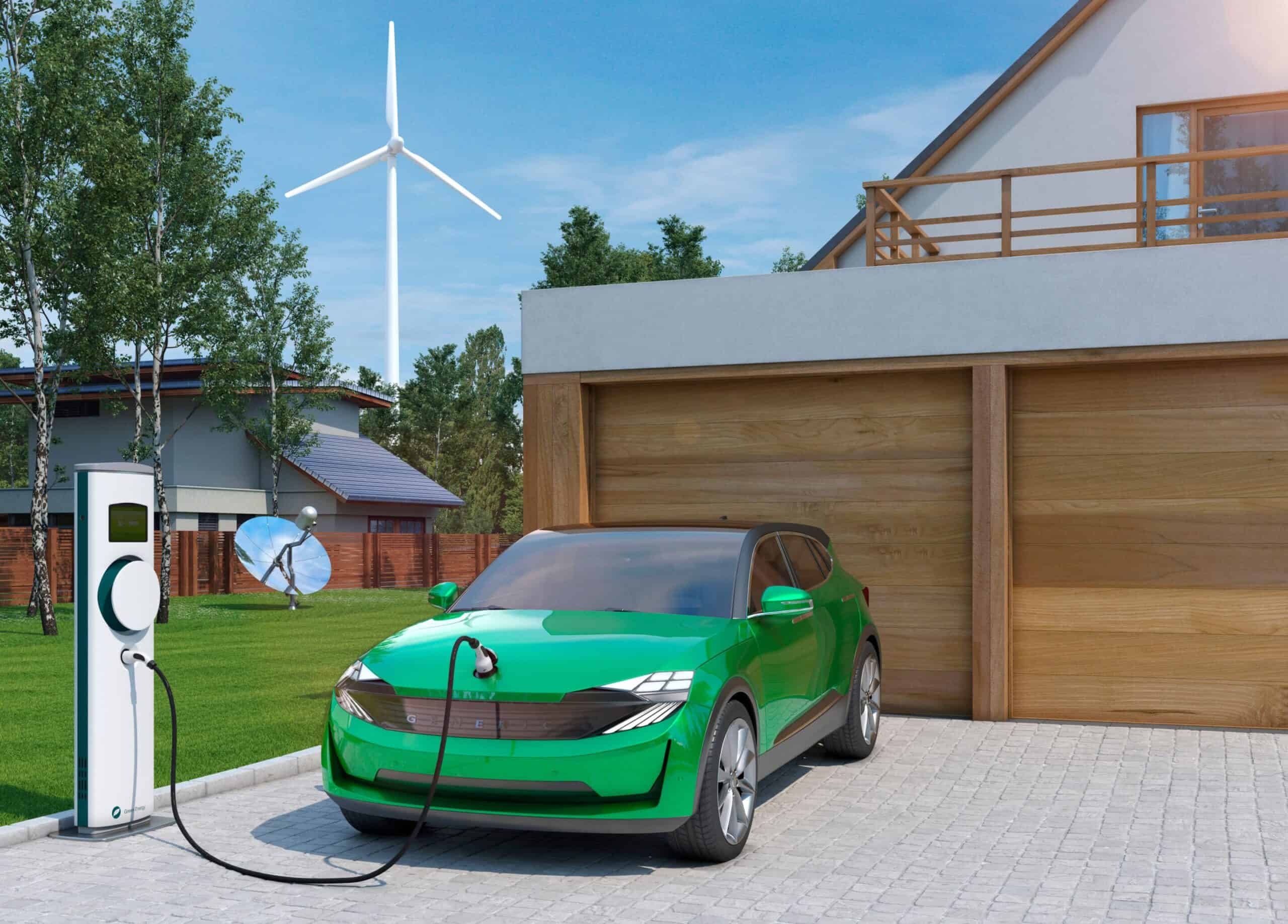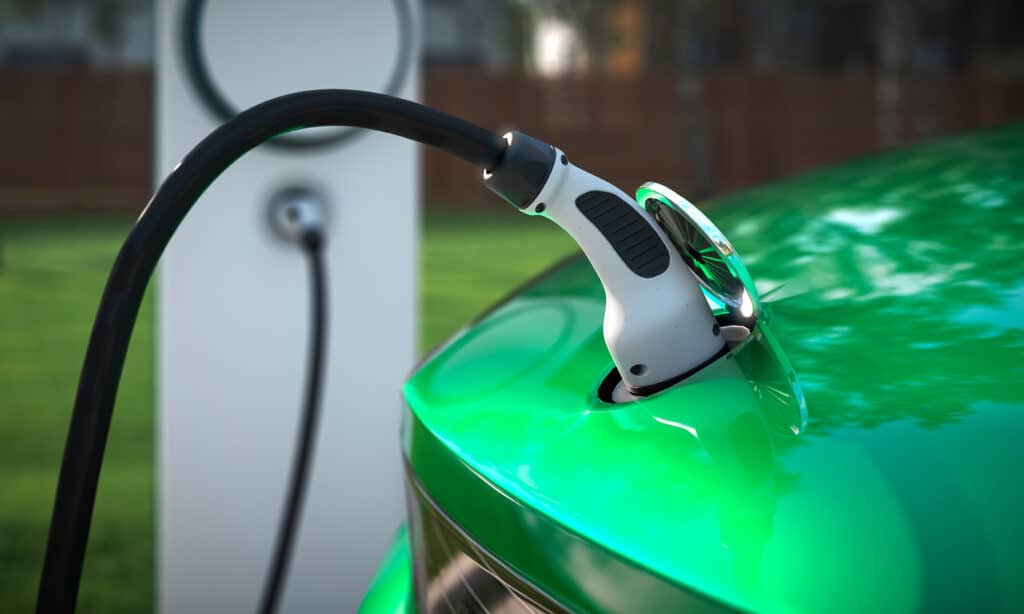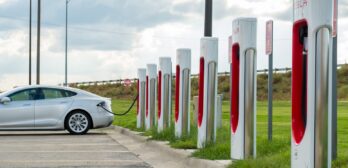Inflation Reduction Act: Your Guide to Energy Savings
Good news for homeowners and business owners looking to complete a clean energy project at their home or business! The passage of the Inflation Reduction Act (IRA) of 2022 will make projects such as EV charging, solar, and storage more affordable. The new IRA law includes $369 billion for clean energy and climate programs to reduce emissions and energy costs and has been the most significant federal climate and energy legislation ever passed in US history.
Here’s our summary of the IRA and what it means for you. When you’re ready to move forward with your clean energy project, Dominion Energy Solutions is here to help.
New Climate and Clean Energy Incentives
The Inflation Reduction Act (IRA), signed into law by President Biden includes climate and clean energy incentives that will make clean energy technologies more affordable to more Americans. The law, a variant on the original Build Back Better package, is a budget reconciliation law designed to reduce the deficit through new tax provisions combined with broad financial investment in clean energy products that reduce emissions. The average American household spends more than $1,850 a year on home energy bills, not including transportation costs. Installing clean and efficient technologies in a home—like rooftop solar—can save residents hundreds to thousands of dollars per year, making it more affordable to turn on the lights, and keep the house cool in the summer.
In this post, we focus on what the IRA means for clean energy technologies such as electric vehicles (EVs), solar, and battery storage. What we are especially excited if you’re considering solar or did this past year, considering switching to electric vehicles, or looking for ways to create a cleaner environment.
Electric Vehicles – Savings on the Road
The legislation will spur forward progress on EV affordability by cutting the sticker price of a new electric vehicle by up to $7,500. This will make EVs affordable for more Americans as soon as they drive their new vehicle out of the dealership, so they can benefit from the ongoing savings that come with owning an Electric Vehicle.

For Homeowners -Vehicle Tax Credit
- Customers who purchase an EV will be eligible for a federal tax rebate of up to $7,500. This tax credit existed prior to the IRA’s passage, however there are a few important changes implemented with the updated legislation.
- The previous credit phased out after a manufacturer had sold 200,000 cars, making Tesla and GM ineligible and others nearing ineligibility. The new law removes these caps, ensuring all manufacturers are eligible again.
- There will be new eligibility limits on buyer income – you must claim less than $150K for individual filers, $300K for joint filers. This provision is intended to ensure the benefits flow to the households that stand to benefit more from the financial support.
- There will also be new eligibility limits on manufacturers – the credit will only apply for lower-MSRP vehicles ($55K for cars, $80K for vans/pickups/SUVs) and there will be requirements associated with sourcing materials in North America or a free trade partner country.
- The credit can now be assigned to a dealer, rather than an individual buyer. This will help buyers without sufficient tax liability leverage the credit, and it will make it easier to receive – through a point-of-sale rebate at time of purchase rather than as part of an individual’s taxes.
- For the first time, there will be a corresponding tax credit for used vehicles. EV buyers will be eligible for a refund of $4,000 or 30% of the sales, whichever is lesser. There are eligibility requirements on the used-vehicle credit, just as for the new vehicle credit.
EV Charging Credit for Homeowners
Customers who install EV charging infrastructure at their homes are eligible for a credit on their installation costs — up 30% or $1000, to whichever is lesser. As 80% of EV charging at home, this credit will be helpful in providing financial support to ensure drivers have the home charging solution that best meets their needs.
For Commercial – Vehicle Tax Credit
Like residential customers, businesses are eligible for federal tax credits for purchasing new EVs. For commercial customers, light-duty vehicles are capped at $7,500. For medium- and heavy-duty vehicles (weight rating of 14K lbs or more), the credit is capped at $40,000. There are additional eligibility requirements for commercial customers: the eligible credit amount is 30% of the sales price or the incremental cost of purchasing an EV (over a combustion vehicle), whichever is lesser.
EV Charging Credit for business
The law provides a federal tax credit for EV charging infrastructure. Through this section, businesses can receive up to $30,000 or 30% of their EV charging installation costs, whichever is lesser. There are additional requirements around project location and construction labor. More and more businesses seek to add EV charging for employees, customers, or the public to their properties. Too often, the price tag of the installation is a barrier to project deployment. This provision provides financial support to help bring down the costs of EV charging projects, which will help spur new commercial development.
Solar for Homeowners
30% Tax Credit and 10 year Investment Tax Credit Extension
The Investment Tax Credit (ITC) is the major policy tool that helped scale solar in the US for the past decade. In this law, the ITC increases from 26% to 30% for residential customers and is extended through 2032.To be eligible for the credit, the system must be installed by December 31, 2025. A great part of the ITC extension is that the 30% credit will be retroactively applied to anyone who installed their system since the beginning of 2022. These changes are important in providing positive financials for customers considering solar and for providing long-term policy certainty for companies selling solar.
Dominion Energy Solutions will provide you with options when it comes to paying for solar. From cash purchases to loans to tax credits, you’ll get all the information you need to make a smart decision.
Solar for Commercial
30% Tax Credit
The ITC was also extended and increased for commercial scale, starting at up to 30% in 2022. There are additional eligibility requirements for meeting prevailing wage and apprenticeship requirements. Additionally, financial incentives are available through the ITC – “adders” for siting in energy communities, for use of domestic materials, for siting in low-income or tribal communities, and more.
In addition to the ITC, commercial solar projects are now eligible for the Production Tax Credit (PTC), a policy tool which has been critical to building the wind industry in the United States. Unlike the ITC, the PTC allows for payment on per-kWh basis (currently $0.026/kWh). The new law allows choice between ITC and PTC – only one can be claimed per project. This allows for flexibility in financial structures on a per-project basis.
Battery Storage
30% Storage Tax Credit
For the first time, the IRA extends the ITC to includes a 30% storage tax credit for standalone energy storage. Previously, storage had to be paired with solar to be eligible for the ITC. This means that current solar owners would get a 30% tax credit on a battery storage retrofit.
Providing a standalone storage ITC allows additional flexibility for storage project developers by bringing down the cost of projects in applications where pairing with solar is not advantageous. The storage credit is available to residential and commercial customers, as long as the system is over 5kWh.
Questions?
In summary, these game-changing clean energy investments would lower energy costs and make clean energy technologies affordable to more Americans. If you’re considering a clean energy project which may benefit from the IRA, the Dominion Energy Solutions team can help you from project conception through to installation.
Contact us at 833-793-0882 with any questions!




